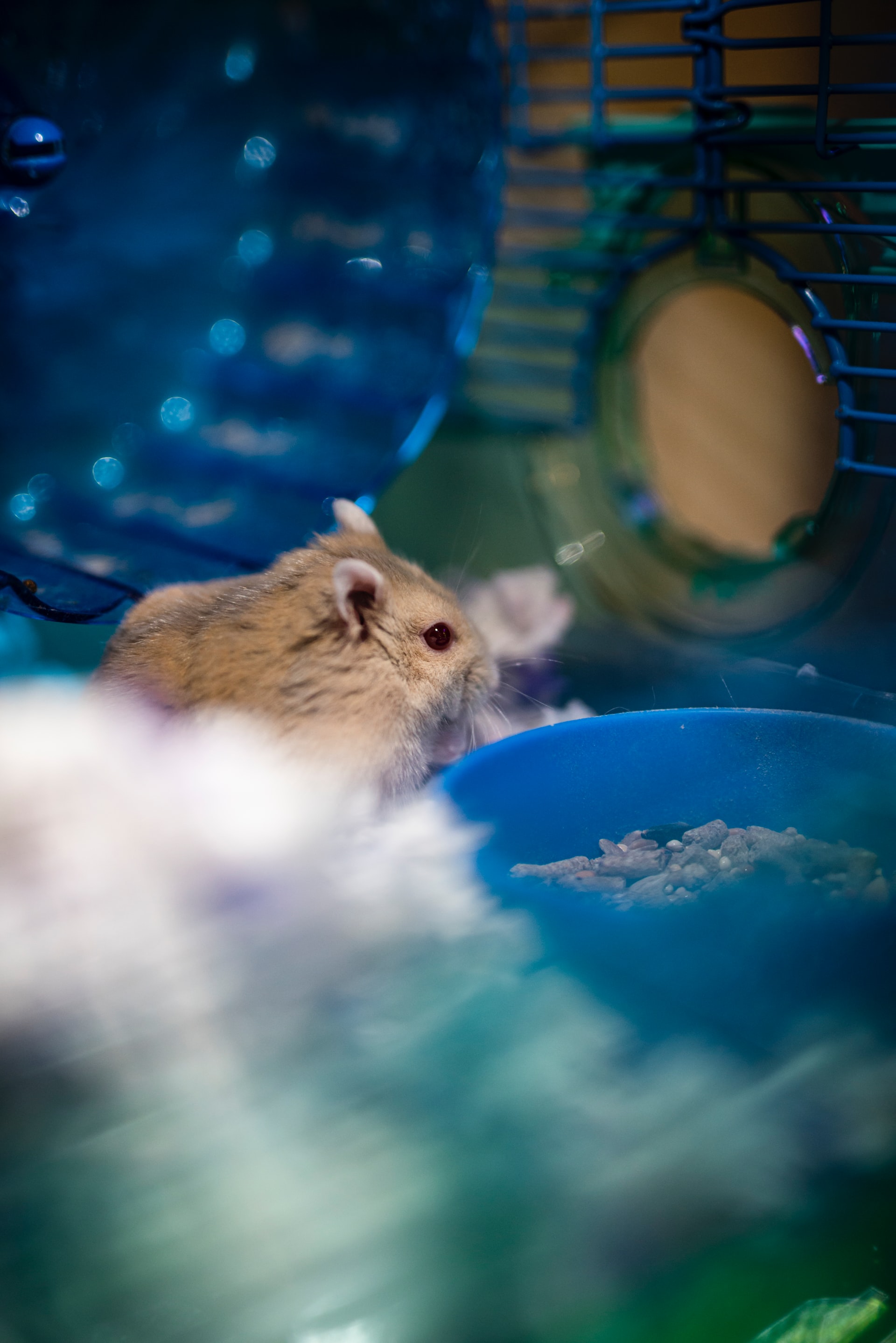BSc (Hons) Animal Behaviour, Welfare & Conservation Science

Course details
UCAS Code
839K
Year of entry
2025, 2026
Duration
3 YRS (FT) 5 YRS (PT)
UCAS Tariff
96-112
Institution Code
G53
Location
Northop
Why choose this course?
This broad-based course is designed to equip you with the knowledge and skills required to enter a variety of professions within the animal sector.
You will:
- Develop and advance your existing knowledge in the core themes of animal welfare, behaviour and conservation
- Design and implement a research study of their choice
- Gain personal and professional development to maximise employability within the industry
- Have access to a veterinary clinical suite, bespoke training area and Cruft’s standard agility course
- Enjoy off site visits to animal charities, wildlife centres and other industry related venues
Key course features
- Develop high-level knowledge of animal physiology, behaviour, training, welfare, and conservation
- Urban and rural study environments - split your study time between the Northop campus set in the stunning North Wales countryside and our Wrexham campus, on the edge of the largest town in North East Wales
- Excellent links with industry
- Opportunities to carry out your own research project in a specialism of your choice within variety of settings
- Industry-active staff with specialist academic and practical skills, and experience of working with a range of domestic, and wild animals
- Join our zoological society and enjoy a range of events, activities and trips throughout the year
- Progression from the BSc (Hons) Animal Behaviour, Welfare and Conservation Science includes employment or postgraduate study.
What you will study
YEAR 1 (LEVEL 4)
In the first year, you are introduced to the concepts of biology, animal behaviour and welfare that you will use throughout the rest of your course. Laboratory skills are essential to science and you will receive a foundation in these. You will develop animal husbandry skills and knowledge. You will also undertake a period of work experience so that you become familiar with the animal sector and develop practical skills necessary for the workplace.
MODULES
- Professional and Academic Development: This module aims to equip the student with a range of skills and attributes in preparation to work in their chosen sector whilst following professional codes of practice. The module will also develop a range of skills required for academic studies, which will be used and extended upon throughout the programme.
- Professional Practice 1: This module will enable you to apply and integrate professional skills, knowledge and behaviours gained from the programme into a real-life workplace setting. This module will enable you to further develop the University skills framework and develop and reflect upon the key employability skills required for the sector.
- Introduction to Ecology: This module aims to introduce students to the relationship between organisms and the environment around them. Key ecological definitions will be explained, and students will understand the variety of complex biotic and abiotic interactions that influence the abundance and distribution of organisms.
- Human-Animal Interaction: This module introduces students to the many facets of Human-Animal Interaction and the wide-ranging roles of animals in society across time and cultures. Students will examine different types of interactions and relationships between humans and animals and identify the costs and benefits to both species.
- Ethics and Welfare: The module will include a range of learning forums such as seminar discussions and independent study. Independent enquiry is a key aspect of the module, with reference to a range of resources, including texts and journals and industry practitioners to bring currency to their allocated subject area.
- Contemporary Animal Management: This module aims to equip students with knowledge of the underlying concepts and principles of animal management and contemporary ethical practice. Students will apply theory to Practice and develop the qualities and skills, and personal responsibility necessary for employment in industry.
YEAR 2 (LEVEL 5)
In the second year you will build upon knowledge gained in your first year and develop your understanding of a variety of topics in more detail. You will learn about nutrition, physiology, conservation, and population biology. You will also learn research skills and report writing within research methodologies.
MODULES
- Animal Health and Disease: This module continues to extend and develop our students’ knowledge and understanding of animal health and disease from their anatomy and physiology module. The disease process will be examined and the physiological status which affects the normal parameters. This module will examine the different pathogens and how they manifest into disease states.
- Anatomy and Physiology: This module will develop the student’s knowledge and understanding of animal anatomy and physiology at both a systems and cellular level. This module will cover a range of animal species.
- Learning and Training: This module will equip students with the underpinning knowledge of learning theory and its use effects and application to practical training. This can be utilised to develop and implement training and handling techniques in the workplace which are effective and ethically sound.
- Contemporary Research: This module aims to enable students to develop their knowledge and understanding of research methods and associated ethical implications. It will equip them with sufficient capability to plan a research project in their field of study.
- Professional Practice 2 (FdSc Only): This module will enable students to build upon the professional skills, knowledge and behaviours gained from the programme and previous professional practice module at level 4.
- Climate Change and Conservation: This module aims to introduce students to natural and anthropogenic changes in the climate and the science of current climate change. Students will be able to identify how climate change will affect biomes, habitats and species worldwide and learn how global efforts to combat climate change are being implemented.
- Survey Skills for Conservation: This module aims to develop student’s identification skills through engaging with practical ecological surveys in the field and online database searches. Students will be involved in data collection, analysis, and interpretation and understand how to write an ecological report using current mapping software to display data.
YEAR 3 (LEVEL 6)
The final year provides students with the opportunity to complete their own unique piece of research, thus enabling them to focus on a topic of choice. Conservation and animal welfare assessment are concentrated on in this year, together with sustainable animal practices. Career development is also a central theme, and third years are expected to complete additional professional development activities alongside their degree to enhance their chances of employment.
MODULES
- Research skills and professional development: The module aims to equip students with the skills to evaluate research design critically as applicable to equine science and welfare management, to select and justify appropriate methods for data collection and analysis, and to reflect on personal development over the duration of the programme of study in preparation for future employment.
- Research Project: This module aims to ensure students can critically evaluate research and will guide students through the completion of a research-based study of a specialised area related to equine science and welfare management.
- Animal Welfare Assessment: This module will enable students to explore how animal welfare can be assessed and improved in a range of environments and situations. Students will investigate the physical, physiological and behavioural adaptations of animals resulting from their modern use and husbandry.
- Sustainable Animal Practices: This module explores sustainable practices in the animal industry, emphasising the interconnectedness of human, animal, and environmental health. Students will gain a comprehensive understanding of sustainability challenges and draw from different disciplines to offer sustainable solutions.
- Conservation Policy: This module aims to introduce students to the range of contemporary threats to biodiversity across the UK. Students will explore the role and the range of conservation polices that work towards protecting biodiversity in the UK and understand the range of socioeconomic impacts of these policies.
The information listed in this section is an overview of the academic content of the programme that will take the form of either core or option modules. Modules are designated as core or option in accordance with professional body requirements and internal academic framework review, so may be subject to change.
Entry requirements & applying
UCAS code: 839K
96-112 UCAS Tariff points at GCE A Level or equivalent. Appropriate AS Level and Level 3 Key Skills qualifications will also be taken into account. At least four GCSEs at grade C/4 (including English/Welsh (First Language) and Maths).
An animal background is required. This may be achieved from work experience in the animal sector, and/or from an informal means such as breeding or keeping animals for leisure purposes.
The entry requirements are for general guidance. Alternative qualifications and experience are considered. All applications are considered on their individual merits.
Teaching & Assessment
Modules are assessed in a wide variety of ways, including academic essays, research posters, presentations, seminar discussions, exams, portfolios, reflective practice and practical assessment. The balance between the different forms of assessment is determined by the different aims and learning outcomes of the modules.
Teaching and learning
Module delivery is achieved through a combination of theoretical lectures, seminar discussions, guest lectures, educational visits, and practical work. Between lectures students are expected to read around their subjects making use of the detailed reading lists published in Module Guides.
Wrexham University is committed to supporting our students to maximise their academic potential.
We offer workshops and support sessions in areas such as academic writing, effective note-making and preparing for assignments. Students can book appointments with academic skills tutors dedicated to helping deal with the practicalities of university work. Our student support section has more information on the help available.
In terms of particular needs, the University’s Inclusion Services can provide appropriate guidance and support should any students require reasonable adjustments to be made because of a recognised prevailing disability, medical condition, or specific learning difference.
Career prospects
Our Careers & Employability service is there to help you make decisions and plan the next steps towards a bright future. From finding work or further study to working out your interests, skills and aspirations, they can provide you with the expert information, advice and guidance you need.
Career opportunities in the animal care industry are wide-ranging. You could be working in:
- Animal welfare organisations
- Conservation
- Zoos and wildlife parks
- Veterinary practices
- Animal feed companies
- Veterinary or pharmaceutical companies
Further study opportunities are also available, such as progression to postgraduate level research and teaching qualifications.
Students moving into employment could expect to progress to careers within the animal industry such as, Welfare Centre managers, zoo keepers or careers allied to the industry, for example research and consultancy work.
Fees & funding
You do not have to pay your tuition fees upfront.
The fees you pay and the support available will depend on a number of different factors. Full information can be found on our fees & finance pages. You will also find information about what your fees include in the fee FAQs.
All fees are subject to any changes in government policy, view our undergraduate fees.
For international students looking to study this course please see our international fees.
Programme specification
You can see the full programme specification here.Accommodation
At Wrexham University, we offer on-campus en-suite rooms within our Wrexham Student Village. These private, fully furnished spaces are conveniently located, providing easy access to campus facilities, study areas, and social spaces. Plus, you’re just a 10-minute walk from the city centre!
With all bills included, free Wi-Fi, 24/7 security, and large social areas, you’ll find everything you need for a great student experience.
Explore our student accommodation options to find your perfect home away from home.
International
This course is open to international students, for information about the university’s entry requirements for EU/international students, please visit our international section.
Upcoming Open Days.
Join us at an upcoming open day to meet your lecturers, find out more about our courses, discover our facilities and get a taste of student life.
Browse all of our open days & events.


